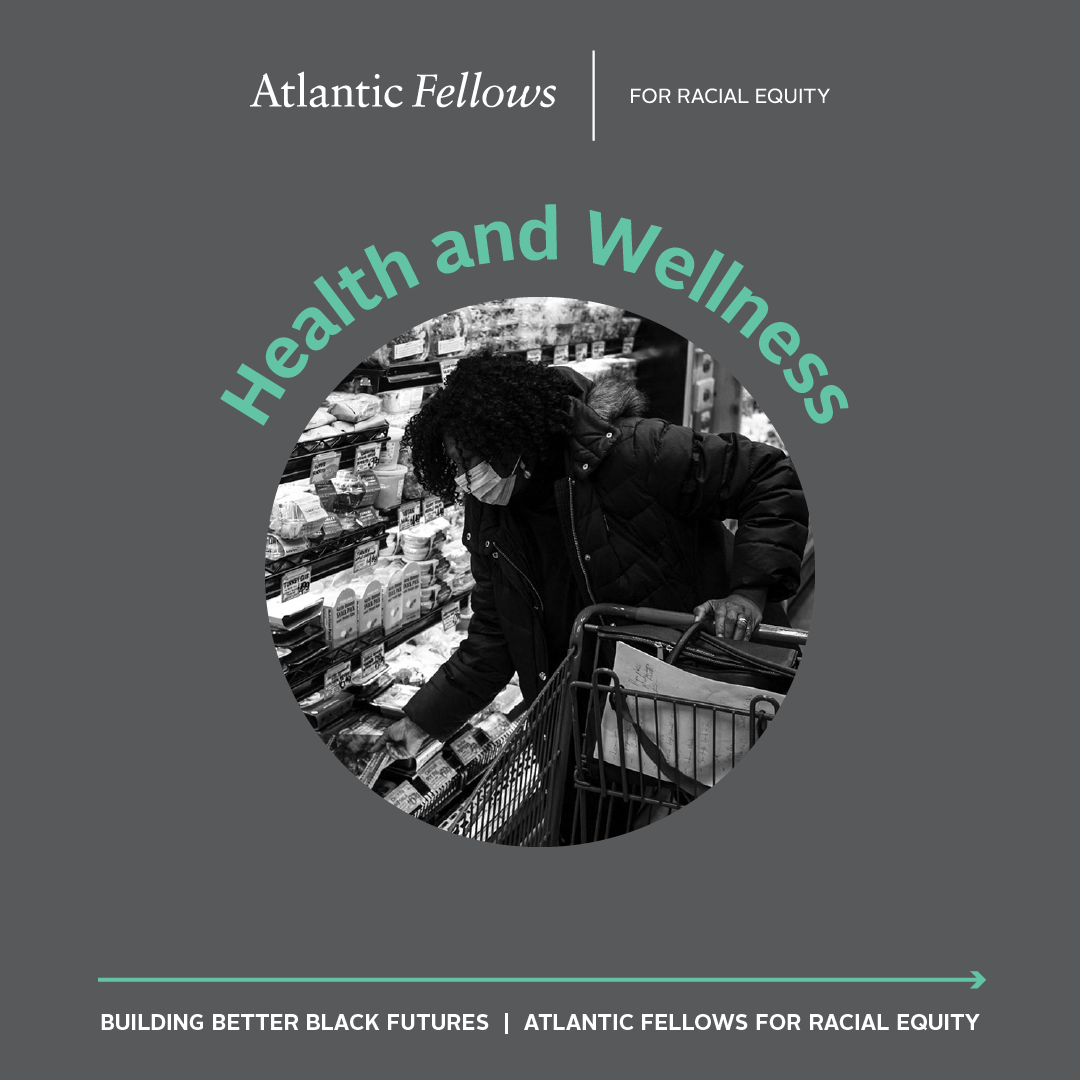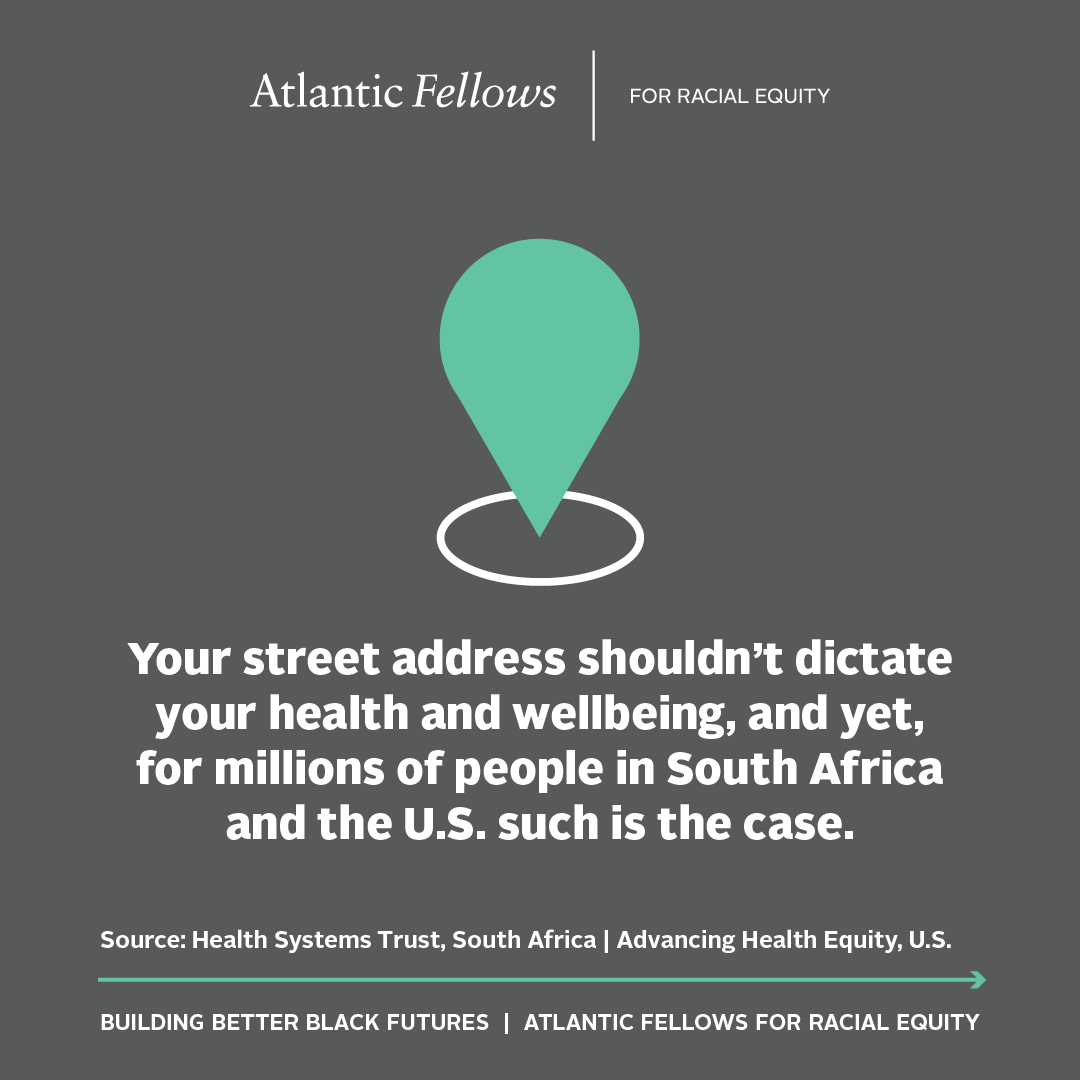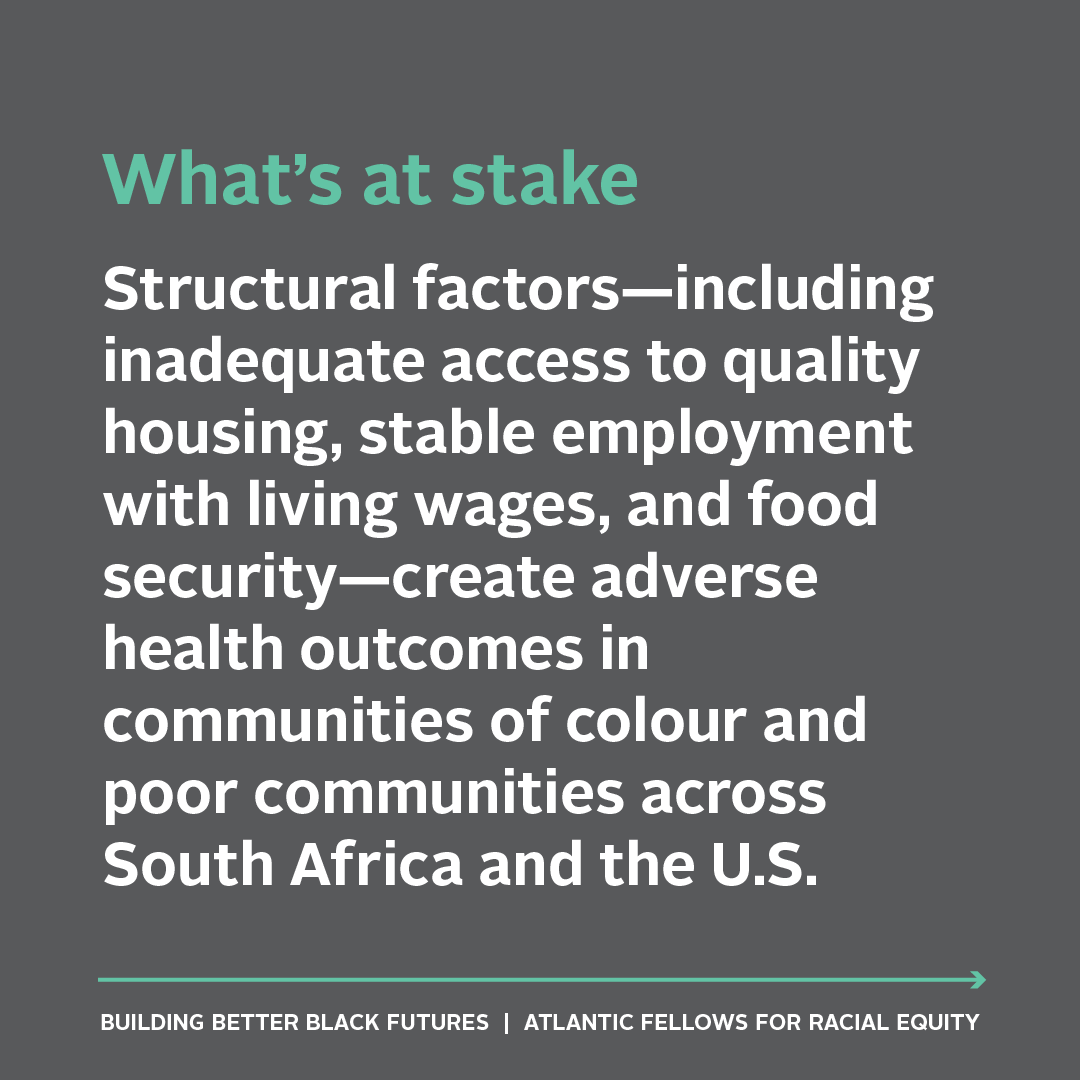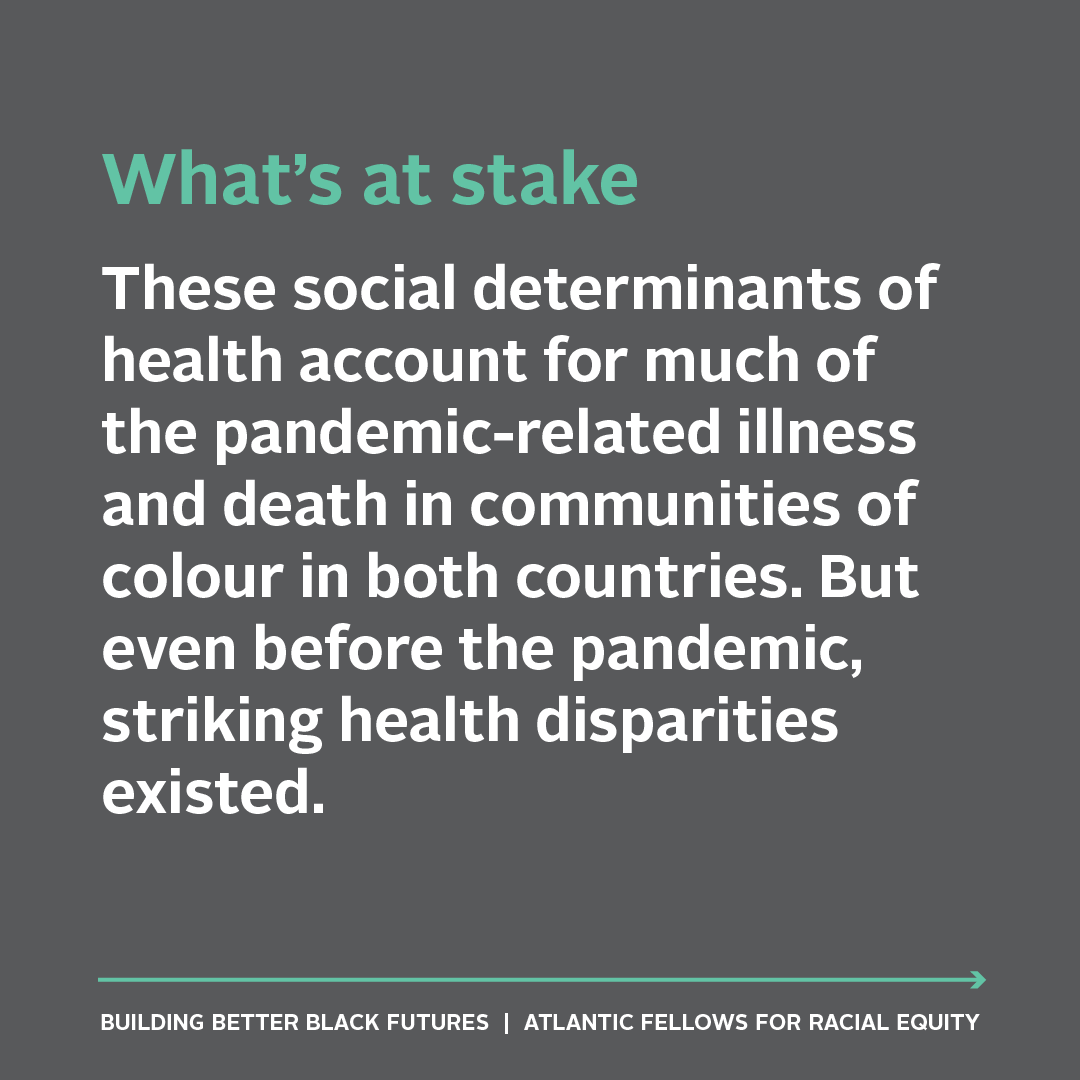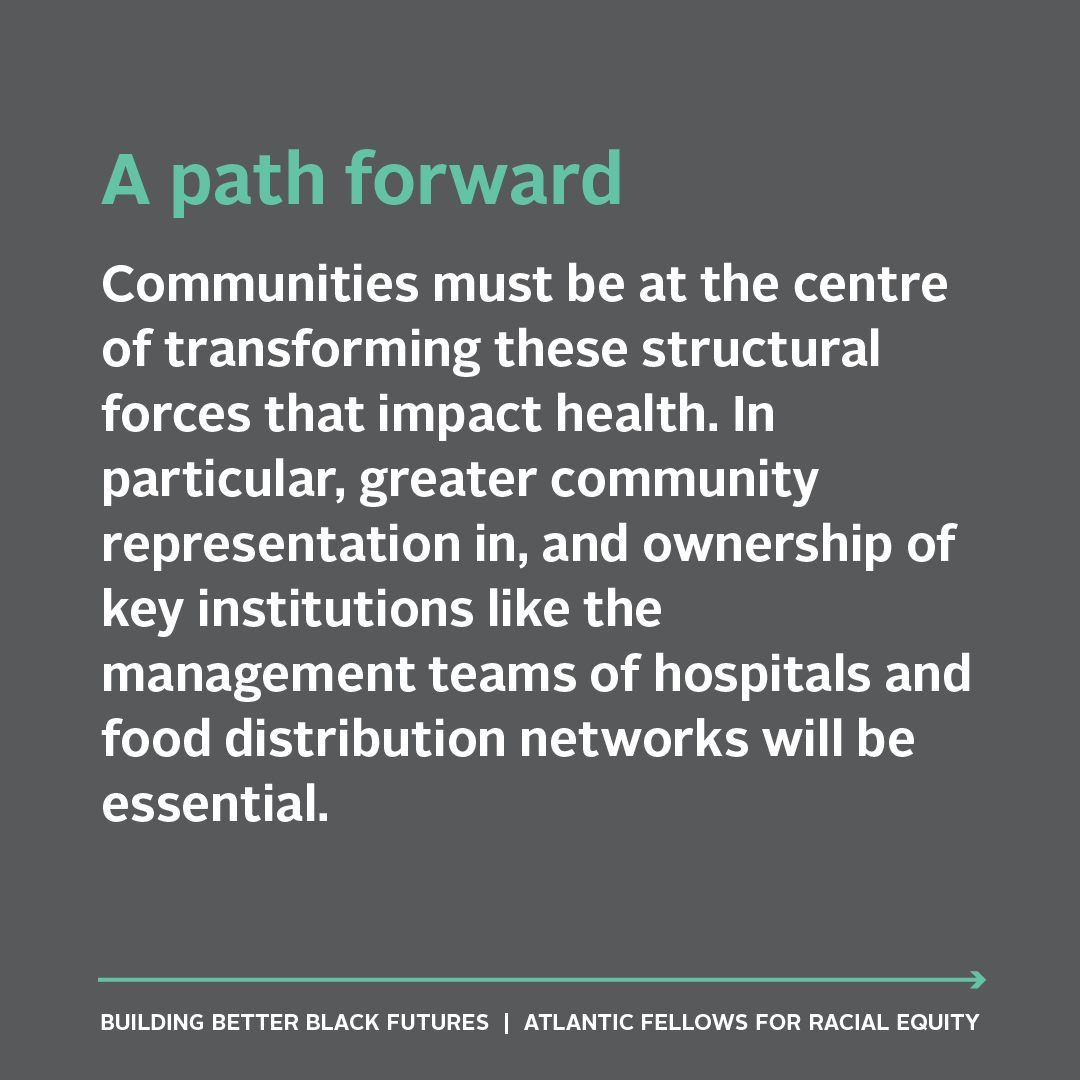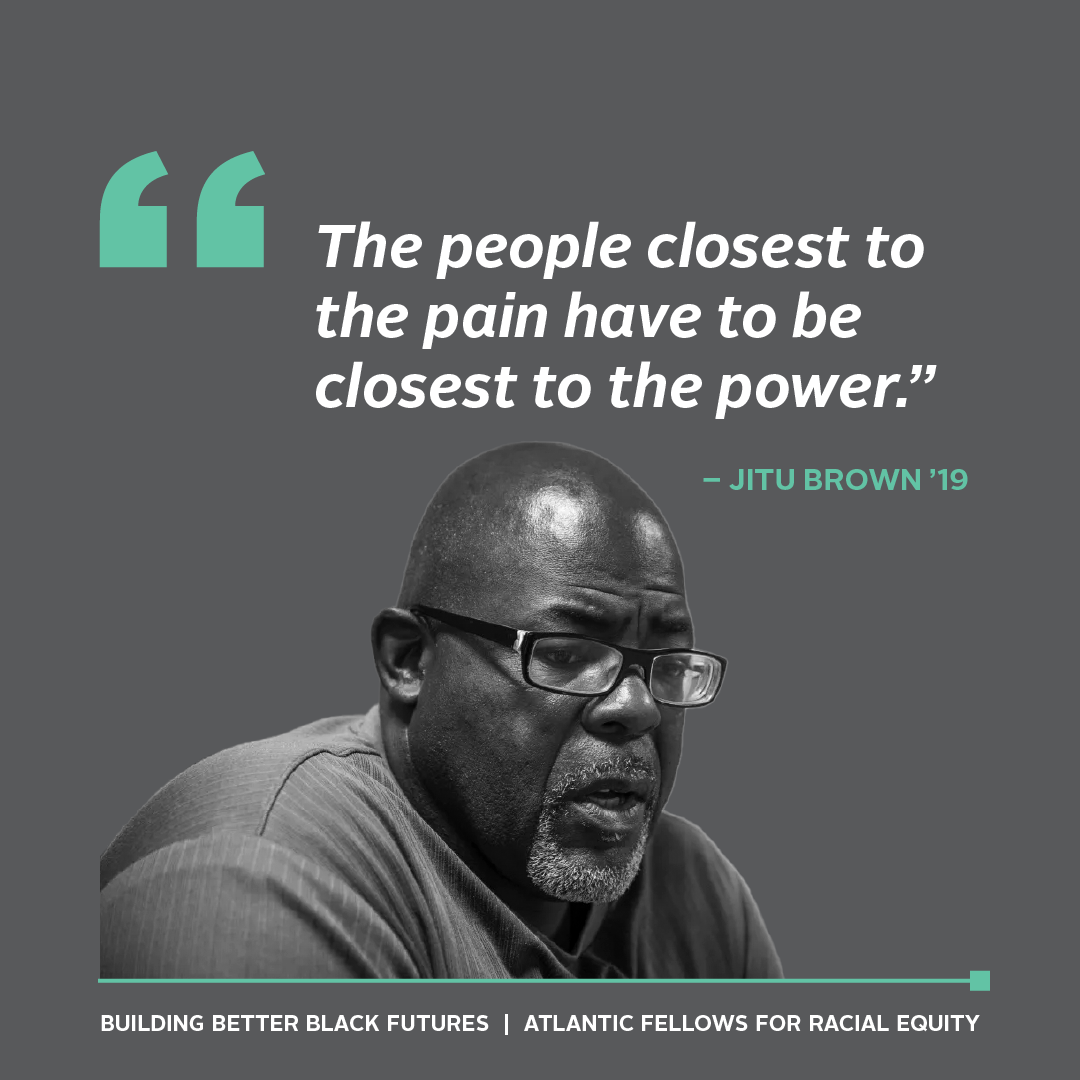Expanding Health and Wellness in Communities of Colour
Since the start of the COVID-19 pandemic, the notion of social determinants of health has re-entered the mainstream public conversation, spurred by the disproportionate numbers of COVID-19 related illness and death in poor and working-class communities of colour in South Africa and the U.S.
A concept that grows out of the work of public health professionals, the term “social determinants of health” clarifies how structural factors such as employment opportunities, income levels, access to quality housing and healthy food, and proximity to healthcare services, drive the health outcomes of communities.
Recent work of Tembinkosi Bonakele’20 and his colleagues at the South African Competition Commission exposed the ways that these structural factors can be worsened by predatory business practices. Many businesses inflated the prices of essential resources such as hand sanitisers and face masks, as the scale of COVID-19 pandemic became clear.
“As people were buying sanitiser and masks, we saw astronomical price increases of 300 to 500 percent,” he said. “And these were not just opportunistic informal traders. In fact, informal traders couldn't get a hold of masks. It was established operations who were able to get hold of supply chains in China and elsewhere who were exploiting people in this manner.”
In the early days of the pandemic, Tembinkosi’s team brought and successfully won legal cases that forced businesses to price these essential products fairly. More recently, they also won a case that brought down the costs of COVID-19 tests, which were essential for people returning to work.
Inequitable food access, already a critical concern for poor and working-class communities in South Africa, also grew worse during the pandemic, as wealthier people were able to buy up available produce at a scale that financially vulnerable communities could not match. Similar patterns are evident across many communities across the United States.
"We have liquor stores instead of grocery stores in most of my neighbourhood," Jitu Brown’19 says of his Chicago community. "We have dollar stores all up and down our streets, but we can't go to the store and get fresh fruits and vegetables. These practices set the tone for communities to be unhealthy."
Jitu’s Journey for Justice Alliance is part of a contingent of organisations and community groups across the U.S. that developed mutual aid projects to provide urgent resources, including healthy food, to their neighbours and other community members, amid the pandemic.
Rev. Kelvin Sauls’19, who is a South African based in the U.S. has done similar work in his local communities in South Central Los Angeles and across numerous parts of South Africa. As the Director of Interfaith Strategies at Community Health Councils and the Co-Founder of Beloved Community Coalition, he is working with community allies to address the institutional and structural factors that drive food insecurity.
In reflecting on paths forward, Tembinkosi, Jitu and Kelvin emphasize the importance of change efforts to be animated by the voices and experiences of those who are made most vulnerable by these structural forces. “The people closest to the pain have to be closest to the power,” Jitu says.
Tembinkosi agrees, observing that submissions from vulnerable communities to his office's public comments channel led them to prioritise price gouging amongst the more pressing health concerns, and informed decisions about where to bring the first cases. In the US, the Journey for Justice Alliance’s quality of life agenda for communities of colour could serve as a similarly rich source of insight to support policy work.
Community ownership of, and representation in, institutions of care is vital, Jitu says, to shift the dynamics between community members and institutions. This was borne out in a 2021 campaign when community members rallied a campaign to save a local hospital. Having learned of plans to close it via a news report, they assembled diverse cross section of the community including churches, community groups and local labour unions to ensure that Mercy Hospital, the oldest hospital on Chicago’s South Side, would remain open to serve the community.
They have since become the Chicago Health Equity Coalition and now serve as a community board pushing for Chicago’s safety-net hospitals–hospitals like Mercy Hospital that primarily serve low-income Black and Brown people–to show greater accountability to communities. Such channels of ownership and accountability are valuable for cultivating community trust, particularly for institutions with histories of violence toward communities of colour that have led to much mistrust with residents.
In addition to grounding change efforts in community perspectives, Tembinkosi also points to the potential for the judiciary as a lever of institutional change. In South Africa anti-trust and anti-exploitation laws were pivotal to litigate and correct pandemic-related price gouging.
Ultimately, Kelvin argues, a health equity lens is a crucial lens for making sense of equity writ large, because it forces a look at structural root causes of inequity. “This illusion of ‘returning back to normal’ is [a] very dangerous path,” he says reflecting on discourse that invariably romanticises life before the COVID-19 pandemic, conditions that were incredibly challenging for many communities of colour. Without efforts to address these inequities, communities of colour will bear outsized harm the next time there’s a pandemic.
Learn more:
Equity or Else [Quality of life agenda from Journey for Justice]; Addressing social determinants of health in South Africa; Follow Kelvin Sauls and Jitu Brown on Twitter; South African Competition Commission;
Lead Image by Robert Nickelsberg/Getty Images
This piece is part of our 2022 Policy Slate for Racially Equitable Futures. Click here to visit the summary page and explore other issues.


